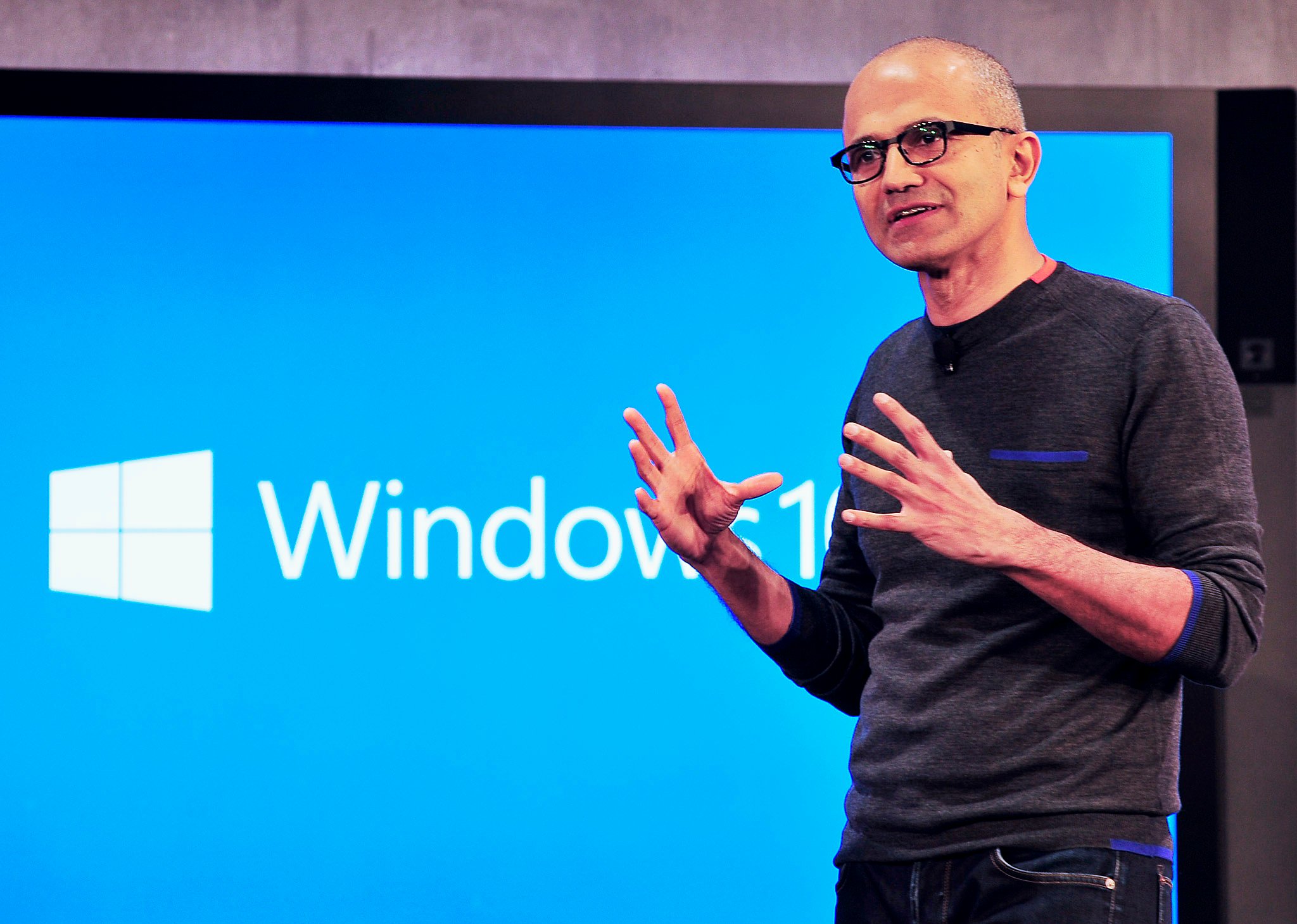Microsoft is committed to Windows phone (they just have a hard time showing it)
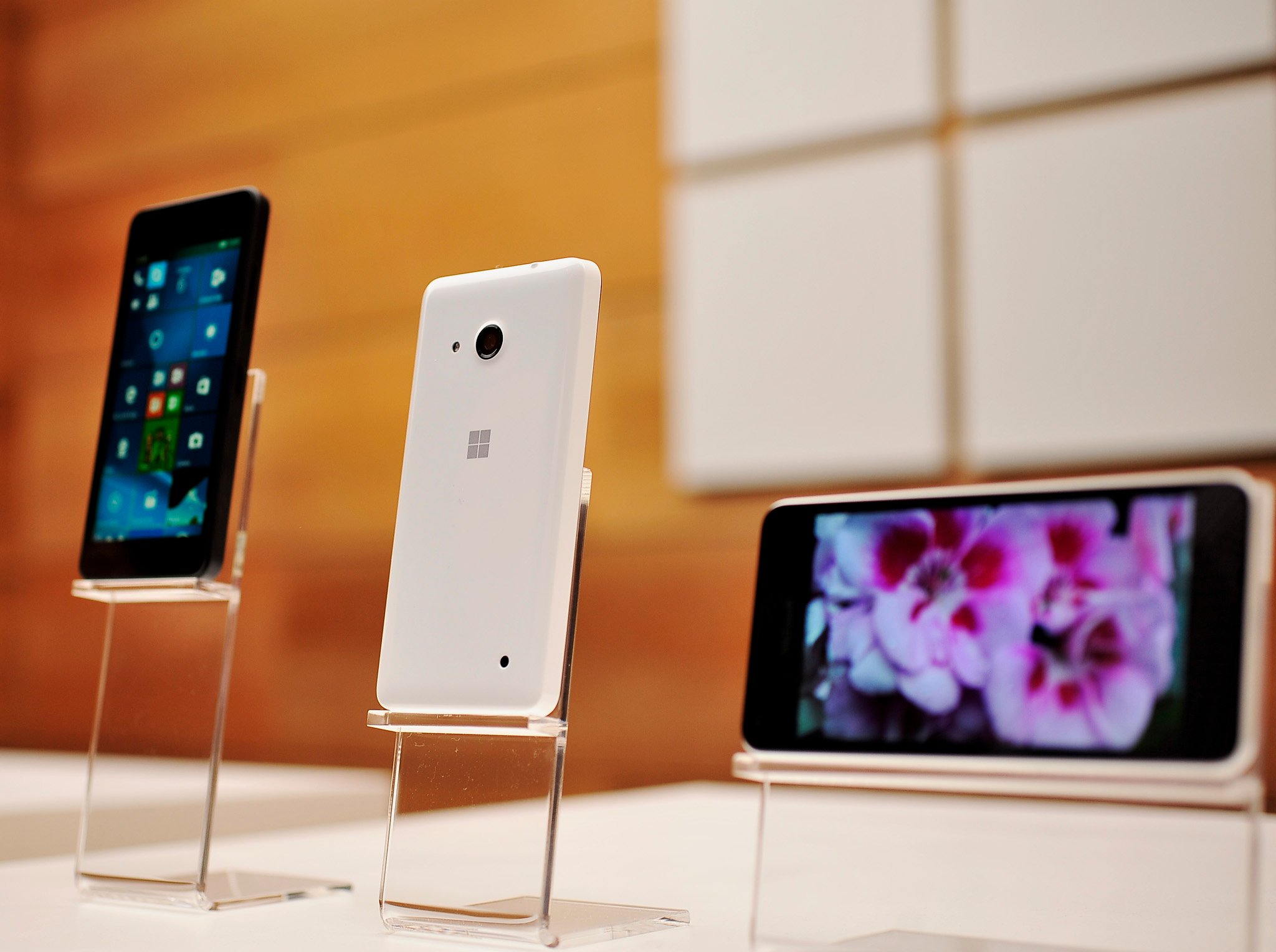
Windows fans have been assured of Microsoft's commitment to phone. But certain decisions such as limited distribution of its latest premium phones cause fans to question this commitment. Is Microsoft really committed to phone? And can 100% commitment and what "looks like" half-hearted support coexist? I believe the answer to both these questions is yes and here's why.
"I am committed to our first-party devices including phones. However, we need to focus our phone efforts in the near term while driving reinvention. We are moving from a strategy to grow a standalone phone business to a strategy to grow and create a vibrant Windows ecosystem that includes our first-party device family." –Nadella July 8, 2015
300 vs. 300,000

"We are Spartans!"
This was the impassioned cry of King Leonidas from the popular film 300. The battle-hardened ruler, like all Spartans, was trained relentlessly in the art of battle from his youth.
Early in the film, Leonidas receives a message from, Xerxes, king of Persia demanding Sparta's surrender. The Spartan king responds by kicking the Persian messenger into a well. He then sends a defiant message back to the Persian overlord. Xerxes, responds by leading an army of 300,000 strong against a committed band of a mere 300 Spartans led by Leonidas.
Leonidas, however, is confident that his committed troops and the execution of his well-laid plan will lead to Sparta's victory. The warrior-king's strategy was to use a narrow passage called the Hot Gates to funnel the enemy into a manageable "human stream". This strategy, he knew, would enable his smaller force to hold the larger army at bay until a greater number of Spartans could be summoned.
3% vs 97%
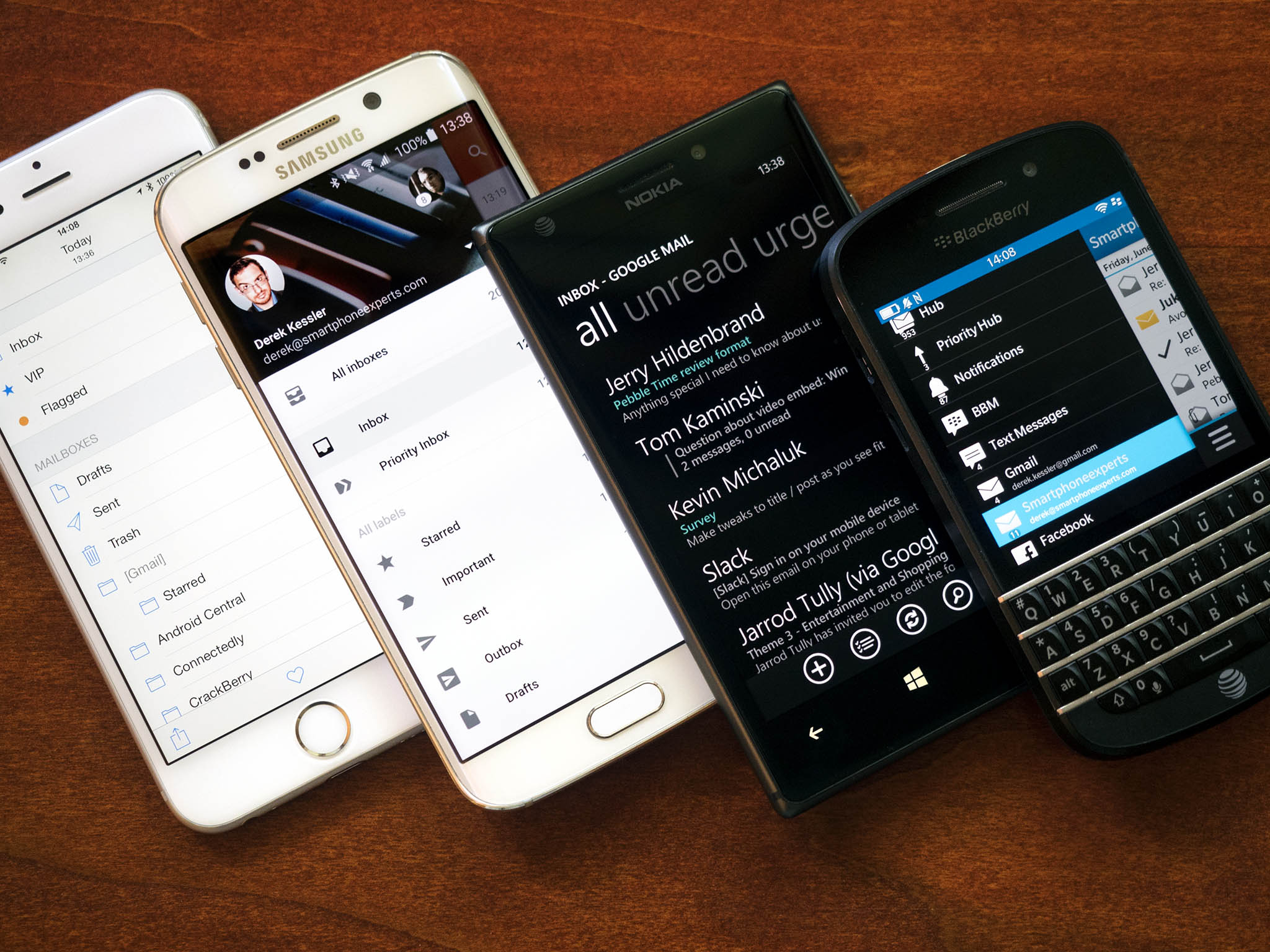
Apple and Android dominate the smartphone space with a daunting combined share of 97%. Microsoft's Windows Phone hovers just beneath 3%. The mobile war is on. And though some have already named the victors, Microsoft with its 3% share is committed to Windows phone. And like Leonidas and his 300, Redmond has a plan, and they are making a stand.
"We're going to build phones for our Windows fans. If you love Windows 10, if you love your Windows 10 tablet, or Surface, or laptop, we want to have a beautiful phone for you, something you'd be incredibly proud of that's going to have the same experience across your devices, the same apps will run on the phone as run on your Windows 10 laptop or tablet." -Capossela Sept 8, 2015
Microsoft's Chief Marketing Officer, Chris Capossela, clearly communicated Microsoft's commitment and approach to the smartphone space. Like Leonidas, however, Microsoft is fighting this war from a purely defensive position.
As a result, the way Redmond approaches the space will look vastly different than how its rivals position and market their smartphones.
We must keep this in mind as we evaluate Microsoft's mobile strategy and performance in the market.
All the latest news, reviews, and guides for Windows and Xbox diehards.
That said, Microsoft's Universal Windows Platform (UWP) is clearly referenced, by Capossela, as a key component of Redmond's phone strategy. For Microsoft, Windows phones, unlike rival's smartphones, are not a "standalone" device. The UWP and universal apps make Windows phones part of the Windows 10 continuum. Consequently, Microsoft, who is dead serious about Windows 10, is also dead serious about Windows Phone.
Showtime
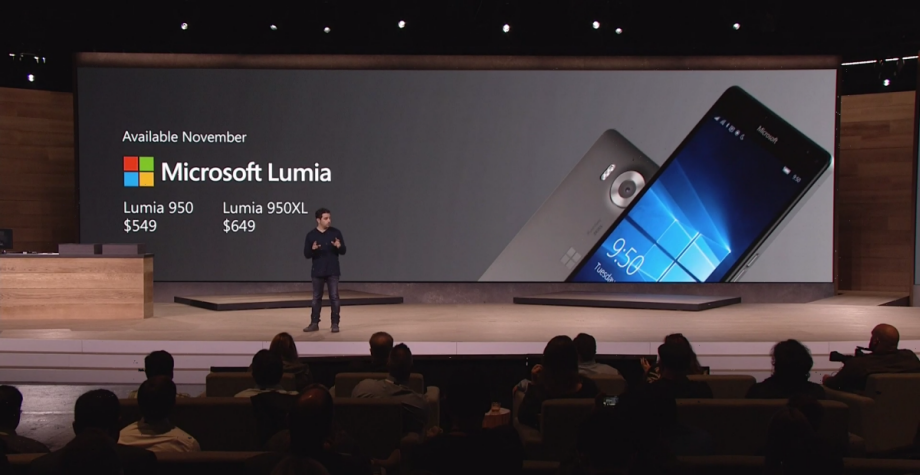
It is said that we spend time on the things that are important to us. If that's the case, Microsoft's commitment to phone was confirmed on October 6th, 2015 during its Windows 10 Devices event. A full 18mins and 46secs of the 85mins and 42secs spent presenting on its six flagship devices (including Xbox) was devoted to Lumia. That's 21.8% of the event that Microsoft's head of engineering for premium devices, Panos Panay, and Executive Demo Lead, Bryan Roper, spent passionately presenting Windows phone. See the full video from Microsoft or watch the whole thing summarized in 5 minutes below.
(The full presentation with Nadella's closing totaled 96mins 14secs.)
Note the approximate times devoted specifically to each device.
- Xbox: 2mins 56secs ~ 3.5%
- HoloLens: 7mins 0secs ~8.1%
- Band: 10mins 33secs ~ 12.3%
- Lumia: 18mins 46secs ~ 21.8%
- Surface Pro 4: 21mins 29secs ~25%
- Surface Book: 24mins 38secs ~ 28.7%
What may be surprising to some is that Microsoft committed more time to Lumia than it did to Hololens and Microsoft Band combined. Furthermore, the only devices that received more stage time than Lumia were the highly anticipated Surface Pro 4 and Microsoft's new "ultimate laptop", the Surface Book. Still, at only 2 minutes and 43 seconds and 5 minutes and 52 seconds more, respectively, Lumia garnered a respectable share of the day's attention.
Pumped
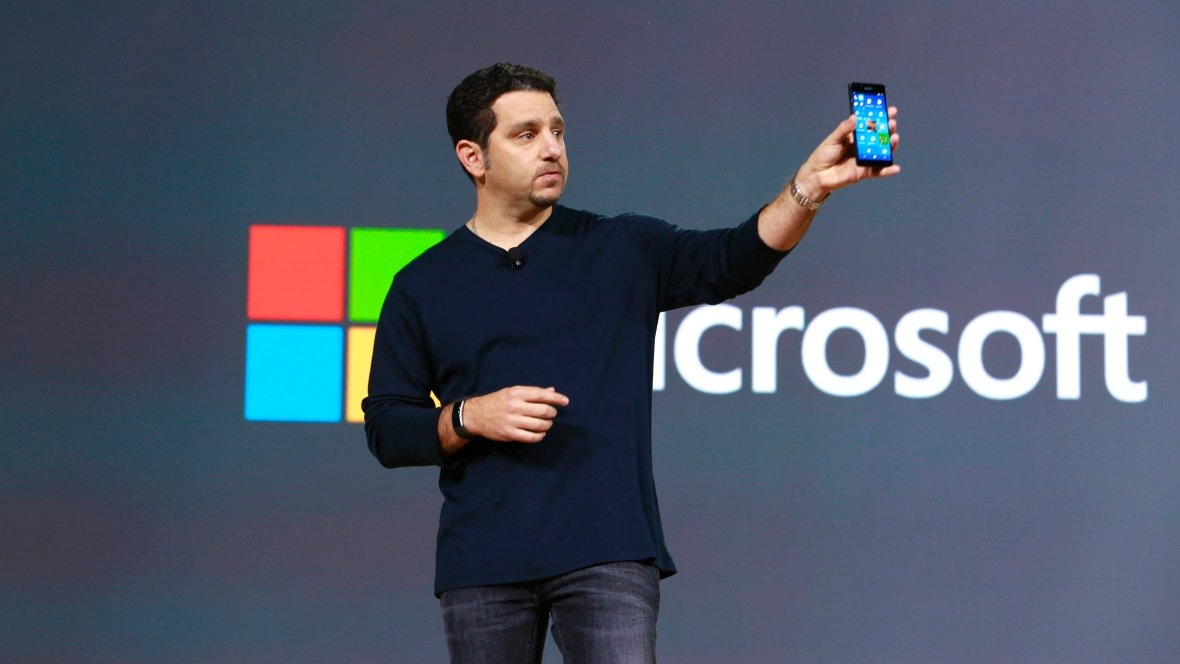
"If you want to be productive at the top level. If you want to consume entertainment at the top level. These devices are built to let you do it." –Bryan Roper, October 6, 2015
Panay's and Roper's passionate presentation of the Lumia 950 family was a powerful complement to the time Redmond devoted to the phones. Panay gave an engaging 9 minutes and 57 seconds rundown of the devices specs and capabilities. Roper continued with a memorable 8 minutes and 42 seconds demo of Continuum. Panos then returned for an additional 1 minute and 8 seconds summary and the intro of the Lumia 550.
With phrases like "I'm so pumped at what we can do" and "God I'm enjoying every minute of it," Panos communicated his, and vicariously, Microsoft's passion for these phones. This passion was clearly transferred to the audience in that during his first 10 minutes on stage, the audience erupted into genuine applause six distinct times. That averages to applause about every 1.5 minutes. That's impressive.
This is my phone!
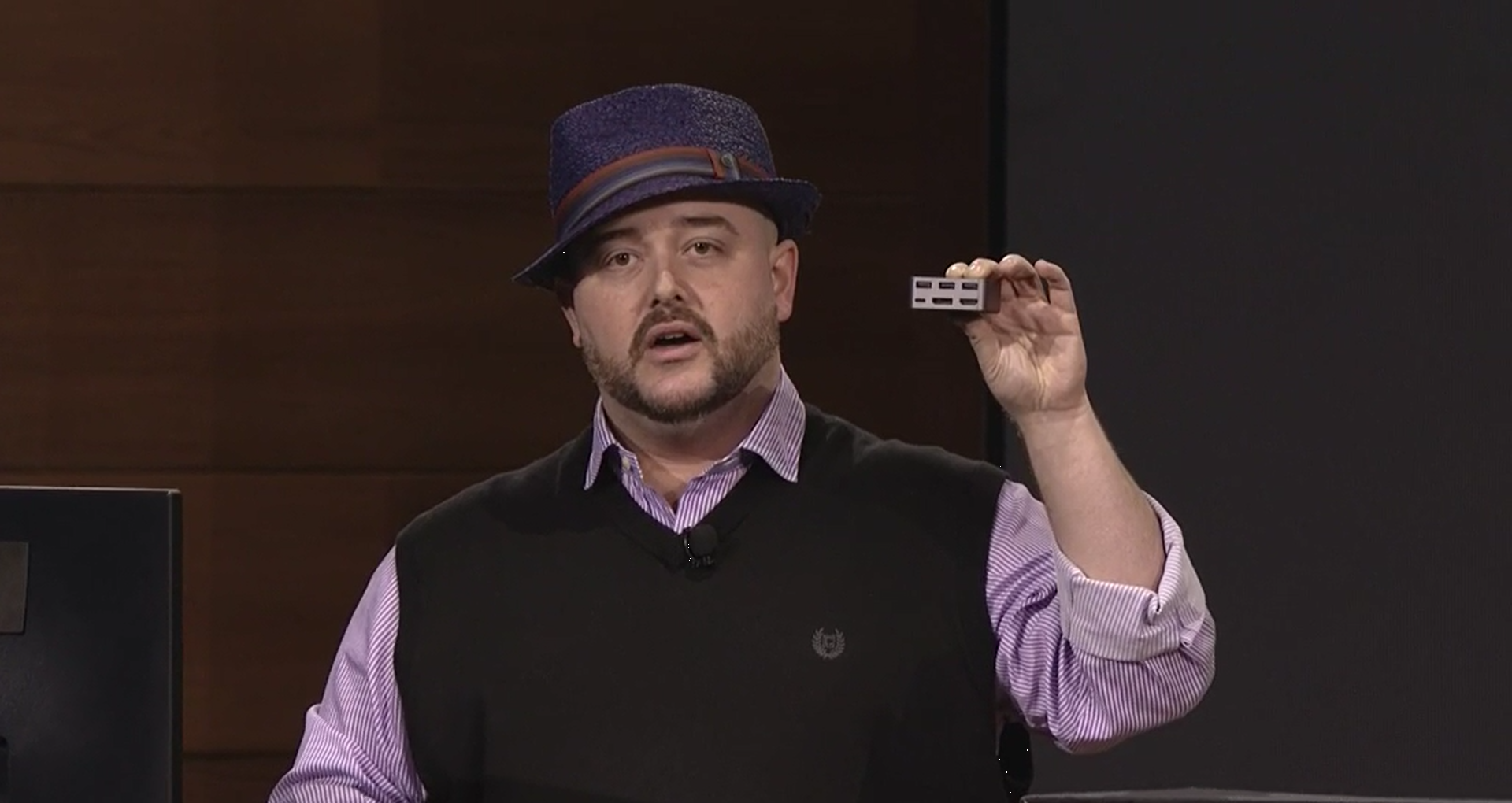
Roper's 8 minutes and 42 seconds on stage took the ripples of excitement Panos generated and created a wave as he hammered home the power of Continuum.
"I'm going to keep hammering that back on you; this is my phone, pushing this experience."
Roper demoed Office, multi-tasking, the task switcher, keyboard shortcuts, use of full HDMI and full 1080 video with full, robust ground shaking audio and more all powered by his phone! Roper's passionate demo fully conveyed Microsoft's commitment to serving the dual user (work/personal) with its Continuum powered Lumias.
The excitement was so contagious that Windows Central created T-shirts with Roper's likeness and famous phrase.
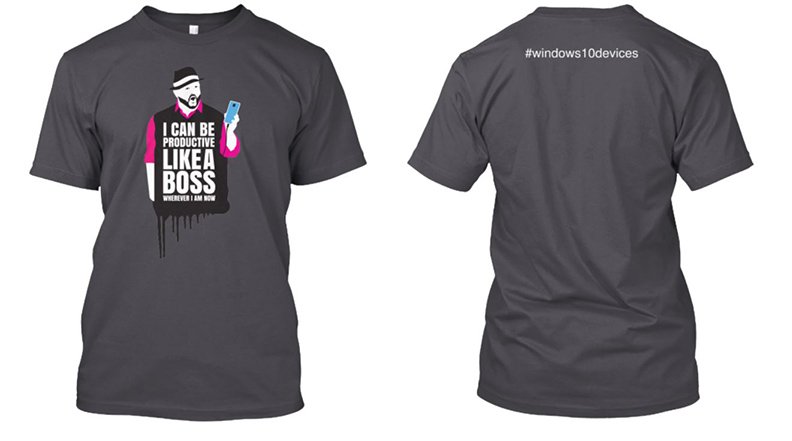
No show
Clearly, Microsoft is committed to Windows phone. However, because their underdog status requires that they fight this war from a defensive, rather than an offensive stance, that commitment isn't always evident.
Redmond's strategy to forego the mass-market to focus high-end devices like the Lumias 950/XL toward Window fans and the enterprise necessitates a tailored and reserved approach to the market.
Reduced carrier partnerships and a greater dependency on Microsoft retail to distribute Lumia is a manifestation of this strategy.
Currently, ATT is the sole US carrier selling the Lumia 950. Thus many fans who are excited about these devices have found it difficult to reconcile Redmond's professed commitment to these phones with their limited distribution. Particularly since this strategy looks very different than the "phone on every carrier" and "massive marketing blitz" offensive strategy of Redmond's rivals.
Indeed, Microsoft is committed to Windows phone. Their retrenching efforts just makes it hard for them to show it.
Fighting in the shade
When a Persian messenger told Leonidas, "Our arrows will darken the Sun." One Spartan replied, "Good, then we'll fight in the shade."
Microsoft has exhibited similar tenacity in the face of adversity. Since their 2010 "reentry" into the smartphone, space detractors have called for their surrender as they've strived beneath the shadow of iPhone and Android. Microsoft however, has only dug in deeper.
"For us in the next couple of years we're really going to focus on building phones that obviously showcase Windows 10, but we're going to try to build phones for two audiences."-Caposella 9/8/15
It's telling that Capossela continually asserts that Microsoft is focusing on two audiences, fans and enterprise, rather than the three Nadella mentions. In omitting the value segment, Capossela as Microsoft's marketing face, may be intentionally communicating to Microsoft's OEM partners that space, which has proven most successful for garnering market share, is now open.

Microsoft's purposeful retraction from the low-end where it has nearly 100% of the share of Windows Phones is an invitation for OEM's to embrace this segment.
Panay's "stand-offish" introduction of the Lumia 550 after his dynamic 950/XL presentation seems to confirm Microsoft's new position toward the low-end.
As such we'll likely see another drop in Windows phones sales akin to the recent 54% decline (hopefully following a Lumia 950/XL induced surge in Q4 2015) in the future as this plan plays out.
Windows phone is about Windows 10
As I shared in Microsoft is positioned ahead of the curve in mobile Redmond is transforming the mobile space. Where the competition is exercising a show of force and numbers as Xerxes and his army did, Microsoft as Leonidas and the 300 Spartans, are funneling the mobile space into a new paradigm.
Microsoft has built an agnostic cloud platform upon which rival's apps run and app data resides. They've also designed a platform agnostic device management platform for the enterprise. Redmond's positioning of cross-platform Microsoft-branded apps also ensures that users are growing accustomed to Microsoft's solutions. Microsoft is becoming the mobile platform in the new "device-less" age.
This strategy is coupled with Microsoft's Universal Windows Platform and first-party devices. Furthermore, per Nadella, Microsoft experiences will be best on Microsoft devices. This claim appears to have been proven by Continuum enabled devices like the Surface and Lumia 950 family of devices running universal apps.
Thus just as Leonidas' Spartans, Microsoft is positioning users between its own "Hot Gates." As hundreds of millions of iOS and Android users upgrade their PC's to Windows 10, the potential appeal of the new OS on one side, and the familiarity of Microsoft cross-platform apps on the other, are designed to have a "funneling" effect on consumers.
Microsoft is using its ecosystem to "funnel" users toward it's first-party devices. Taglines like "the phone that works like your PC" may prove particularly effective among users who enjoy the Windows 10 experience on PC.
Phalanx
Spartans used a battle strategy that involved a tightly unified Phalanx. Every member of the troop was essential for the survival of the whole. Windows phone, as part of a larger whole, is positioned to benefit from a unified platform. Nadella made that clear.
For those that question Microsoft's commitment to phone, the firm's creation of a family of high-end Windows 10 devices which includes phone is an action that speaks louder than words. By showcasing a range of first-party devices, Microsoft provided a broad platform that developers can target, and OEMs can emulate. Again, the UWP ensures that any point of entry into the Windows ecosystem leads to phone.
Of course, Microsoft doesn't exist in a vacuum. Despite careful planning, many factors affect sustainability and potential growth of its 3% market presence. Their retrenching and defensive approach to the market is their acknowledgement of this reality. Limited distribution, no costly TV spots (yet) and a targeting of very specific markets are the results. So yes, Microsoft is committed to Windows Phone, but because of these factors, at least for now, they have a hard time showing it.
Still, this strategy may prove effective in keeping rival's total domination of this space at bay until more Window phone fans can be "summoned." Particularly from a growing base of potential users who love Windows who Microsoft is counting on also coming to love Windows on phone.

Jason L Ward is a Former Columnist at Windows Central. He provided a unique big picture analysis of the complex world of Microsoft. Jason takes the small clues and gives you an insightful big picture perspective through storytelling that you won't find *anywhere* else. Seriously, this dude thinks outside the box. Follow him on Twitter at @JLTechWord. He's doing the "write" thing!

